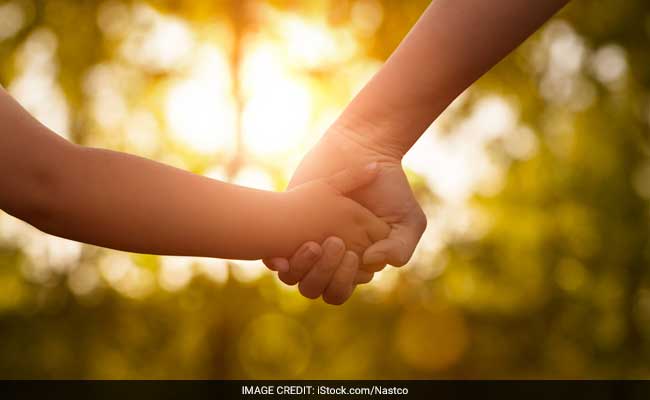
The High Court said that the right to adopt a child cannot be given the status of a fundamental right.
New Delhi:
The Delhi High Court has said that the right to adopt a child cannot be given the status of a fundamental right under Article 21 of the Constitution and prospective adoptive parents have no right to choose whom to adopt.
Justice Subramaniam Prasad upheld the retrospective application of the regulation allowing couples with two or more children to adopt only children with special needs or those born with difficulty, and said the process was detrimental to the welfare of the children and future adopters. Operates for parental rights (PAP). Cannot be kept at the forefront.
“The right to adopt cannot be raised to the status of a fundamental right under Article 21 nor can it be raised to the level of giving the PAP the right to demand its own choice as to who is to be adopted. Adoption The process of taking is governed solely on the basis of the welfare of the children and hence the rights falling within the framework of adoption do not put the rights of the PAP at the forefront,” the court said in a recent order.
The judge said that there is a long wait for adoption and there are many childless couples and parents with one child who would adopt a “normal child”, but the chances of adopting a child with a special disability are very low and hence That is the only purpose of regulation. Ensure that more and more children with special needs are adopted.
“The long wait for prospective parents, who do not have a single biological child, must be seen in the background of the serious mismatch between the number of normal children available for adoption and the number of PAPs hoping to adopt a normal child .
“Therefore, a balanced approach should be welcomed that seeks to reduce the wait for adoption and the best interests of the child for parents with or without a single child, while allowing families with pre-existing low biological numbers coincides with the children,” the court said.
The court’s decision came on petitions by several PAPs, having two biological children, who had applied for adoption of a third child as per the Juvenile Justice (Care and Protection of Children) Act, 2015.
During the pendency of their application, the Adoption Rules, 2022 superseded the Adoption Regulations, 2017 and instead of three or more children, couples with two or more children can now choose to adopt only children with special needs or Can be difficult to maintain. They are relatives or stepchildren.
It is difficult to place children who are not likely to be adopted because of physical or mental disability, emotional disturbance, high risk of physical or mental illness, age, racial or ethnic factors, etc.
The petitioners argued that the retrospective application of the Adoption Regulations 2022 was arbitrary and violative of Article 14 (equality before law) of the Constitution.
In the order dismissing the petitions, the court said there was “no right” to insist on the adoption of a particular child and the petitioners claim that the “inherent right” has been taken away retrospectively, which is enshrined in law. not good.
“Therefore, the policy of the legislature is that the crowding out of many couples, who already have more than four children, who are available for adoption of a child, was realized in the year 2015. By reducing the said figure of four was given to three in the year 2017 and now it has been reduced to two in the year 2022. This indicates that the PAP has no right to insist on the child they want to adopt unless the adoption process May not be fulfilled only in the eligibility criteria,” the court said.
It added that the registration of the petitioners as PAPs is still intact and they are within the scope of consideration for adoption of a child with special needs, difficult to place children and children of relatives or stepchildren.
(Except for the headline, this story has not been edited by NDTV staff and is published from a syndicated feed.)






